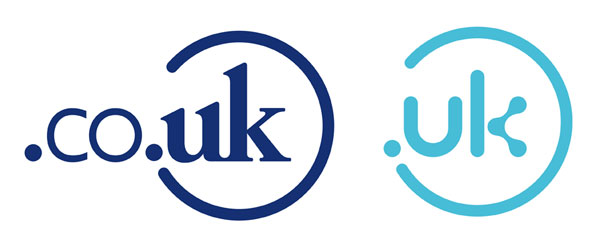Domain Names
.co.uk Vs .uk Domains – What’s The Difference?

You’ve probably noticed recently some websites displaying an address that ends in .uk as opposed to .co.uk, including this one! If you’re finding this confusing and are asking yourself what’s the difference then you’re not alone.
The short answer is that although it may only be the difference of three characters, it means an entirely new domain name has been created. In turn, this brings significant implications for existing holders of .co.uk domains, and future ones too.
Nominet, responsible for all things .uk related, launched .uk domains in June 2014, promoted them as the “new premium UK domain name”, and made them available alongside .co.uk domains, thereby placing the long term future of .co.uk in doubt. A few government organisations were already using this extension, eg. gov.uk and parliament.uk, but Nominet decided to open things up and allow public access to these addresses.
The launch was not straightforward. Nominet (after much criticism) realised more consideration needed to be given to the millions of existing domain holders who had already purchased their web address, ending in .co.uk, who stood to lose out if they had no guarantee of the first opportunity to register the new .uk version.
Nominet decided to offer existing domain holders exclusive rights to register their .uk equivalents, valid for 5 years to take them up, after which it’s first come first served!
Consequentially, most .uk addresses are currently only able to be registered by the current holder of (in nearly all cases) the equivalent .co.uk address. This has inevitably reduced the rate of up-take of the new .uk domains, as website owners have been reluctant to change from the familiar .co.uk. This may well start to change once the rights expiry date deadline of 10th June 2019 has passed.
Should I Register Both Domains?
If you’re serious about your web presence, then yes, register both. By doing so you’ll be protecting your brand against someone else feeding off the goodwill and reputation you’ve built-up. Non UK residents will need at least a UK service address to register a .uk domain. If you do register both then set up a web redirection on the unused domain so that visitors going to that address will be sent to the active address. Now you’re covered, and should you decide to switch domains at a later date, just put the redirection on the other domain.
Think about your email too, with .co.uk and .uk addresses being so similar there’s plenty of opportunity for confusion with emails going astray, sent to the wrong domain, so cover yourself with redirections on these too.
What Are The Benefits of .uk Domains?
Very few compared to .co.uk, essentially a shorter web address, that’s easier for marketing and to type-in (most relevant on mobile), plus it brings the UK in line with many other countries, including most of Europe. Against this is the uncertainty and problems created by having two confusingly similar commercial UK domains, the opportunity for fraud that this situation creates, not to mention a doubling of renewal costs.
It’s no wonder that there was so much controversy when .uk domains were finally announced. For Nominet, and a small number of their larger domain registrar members, this will be a nice little earner!
Whether .uk domains become the preferred choice or not, .co.uk addresses will remain familiar for many years yet, so don’t cancel your .co.uk domains in too much of a hurry. Similarly, when’s the right time, if at all, to switch to the .uk address for your website? Whilst there’s no direct SEO penalty in using a .uk domain, such a move will always be disruptive, so pick your moment and create a migration plan for doing so.
I was initially pleased to see the proposal for the shorter .uk domains, they’re a neater version of the address (this site started using domainforsale.uk on the day of launch) and they may well become the preferred version in time. The .org.uk extension serves the not-for-profit and charity sector well, who still have access to .uk if they prefer. But, I always assumed that .co.uk domains would be migrated to their .uk equivalent, as two parallel .uk commercial spaces never seemed viable.
Is .co.uk still a “great place to be”? Yes, it’s a very strong country level domain (ccTLD), with a high level of trust, but .uk will most likely bring some disruption and uncertainty.
